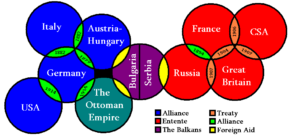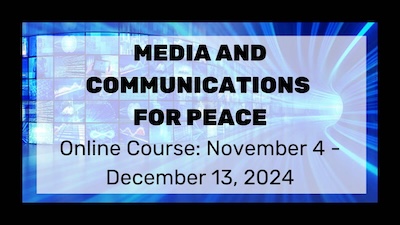(This is section 44 of the World Beyond War white paper A Global Security System: An Alternative to War. Continue to preceding | following section.)

International Law has no defined area or governing body. It is composed of many laws, rules, and customs governing the relations between different nations, their governments, businesses, and organizations.
It includes a piecemeal collection of customs; agreements; treaties; accords, charters such as the United Nations Charter; protocols; tribunals; memorandums; legal precedents of the International Court of Justice and more. Since there is no governing, enforcing entity, it is a largely voluntary endeavor. It includes both common law and case law. Three main principles govern international law. They are Comity (where two nations share common policy ideas, one will submit to the judicial decisions of the other); Act of State Doctrine (based on sovereignty—one State’s judicial bodies will not question the policies of another State or interfere with its foreign policy); and the Doctrine of Sovereign Immunity (preventing a State’s nationals from being tried in the courts of another State).
The chief problem of international law is that being based on the anarchic principle of national sovereignty it cannot deal very effectively with the global commons, as the failure to bring concerted action to bear on climate shift demonstrates. While it has become obvious in terms of peace and environmental dangers that we are one people forced to live together on a small, fragile planet, there is no legal entity capable of enacting statutory law, and so we must rely on negotiating ad hoc treaties to deal with problems that are systematic. Given that it is unlikely such an entity will develop in the near future, we need to strengthen the treaty regime.
(Continue to preceding | following section.)
We want to hear from you! (Please share comments below)
How has this led you to think differently about alternatives to war?
What would you add, or change, or question about this?
What can you do to help more people understand about these alternatives to war?
How can you take action to make this alternative to war a reality?
Please share this material widely!
Related posts
See other posts related to “Managing International and Civil Conflicts”
See full table of contents for A Global Security System: An Alternative to War









One Response
I just returned from Palestine, where one of our meetings was with members of the negotiating team for the Palestinian Liberation Organization (PLO). They explained and encouraged support for the campaign to “internationalize” the Palestinian Question — in other words to put it squarely in the UN and ICC, and stop relying on the “good offices” of the US and other interested parties. (See http://english.pnn.ps/index.php/politics/9394-plo-qits-time-to-internationalize-the-palestinian-questionq ) I thought this was an excellent current example of the need for effective use of international institutions to end conflict, in contrast to the old patchwork of country-by-country wheeling and dealing.